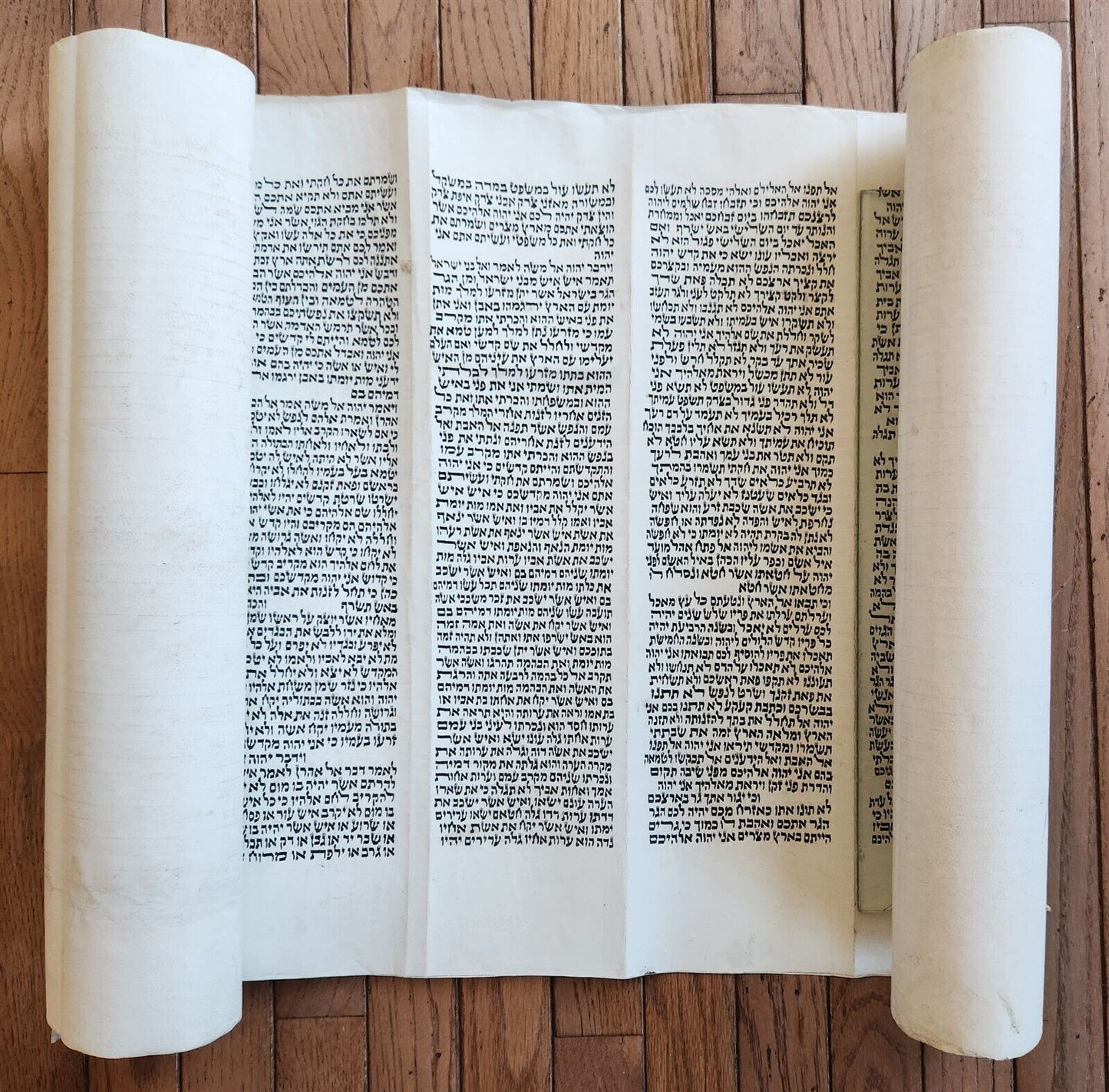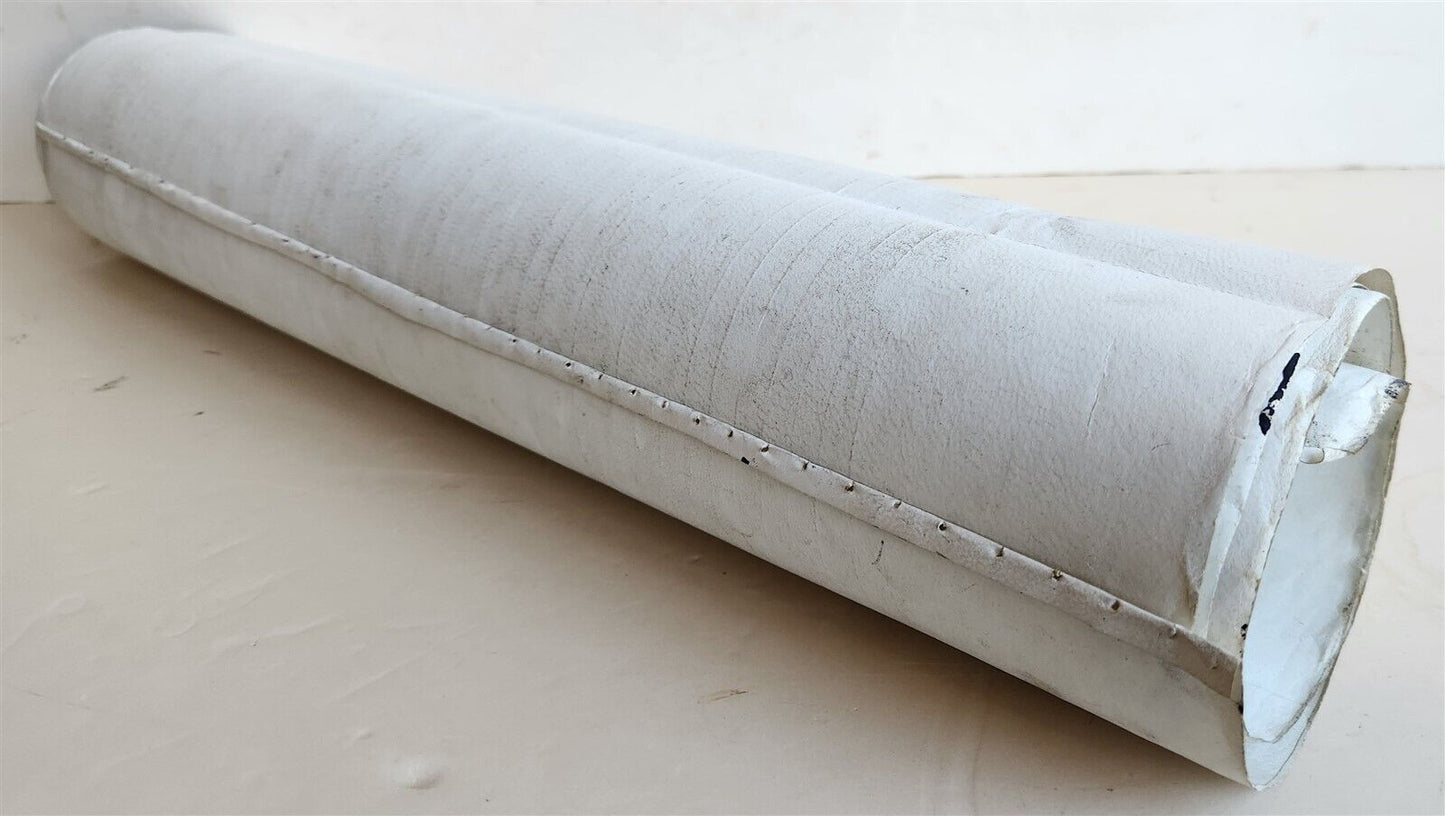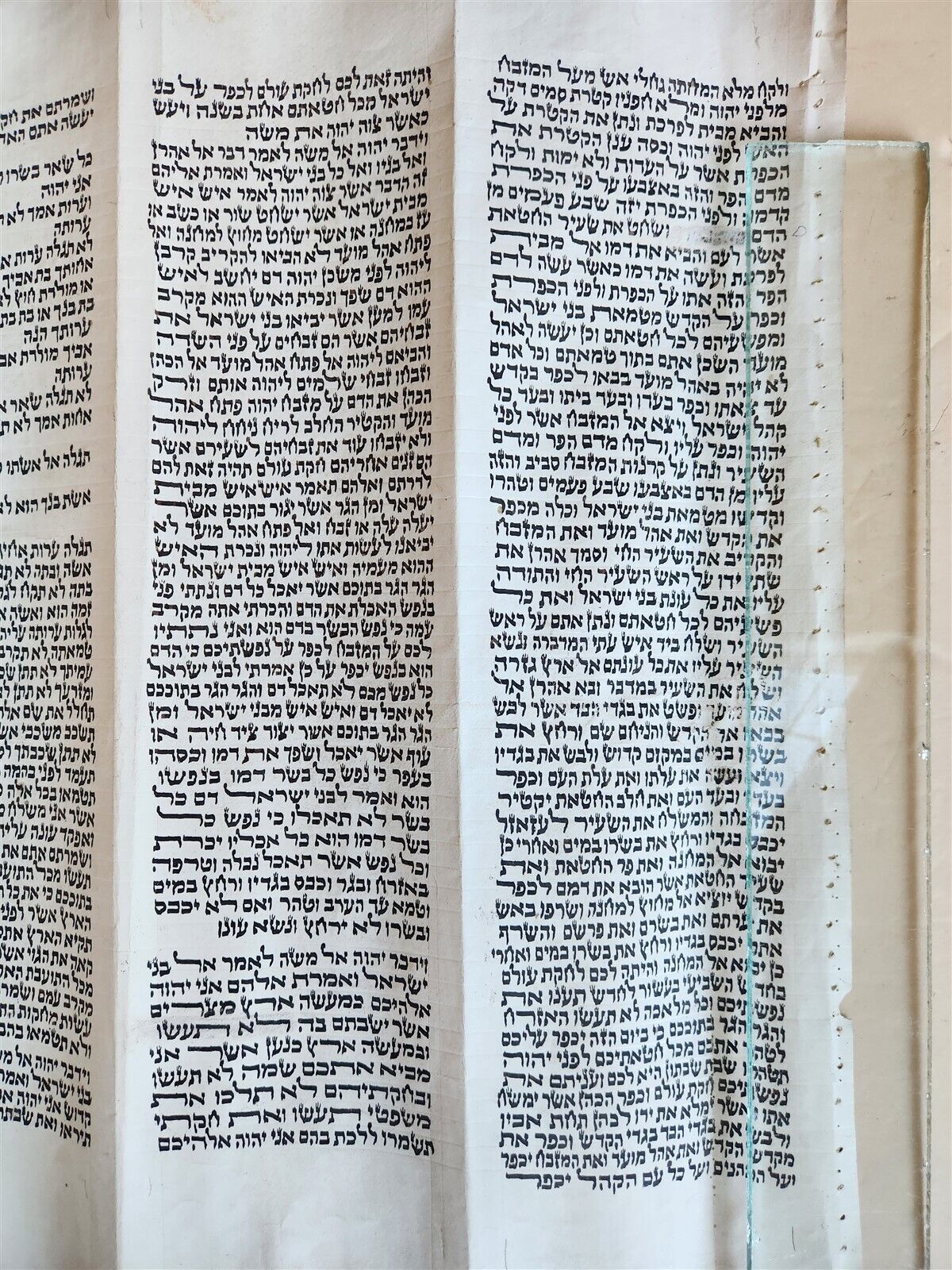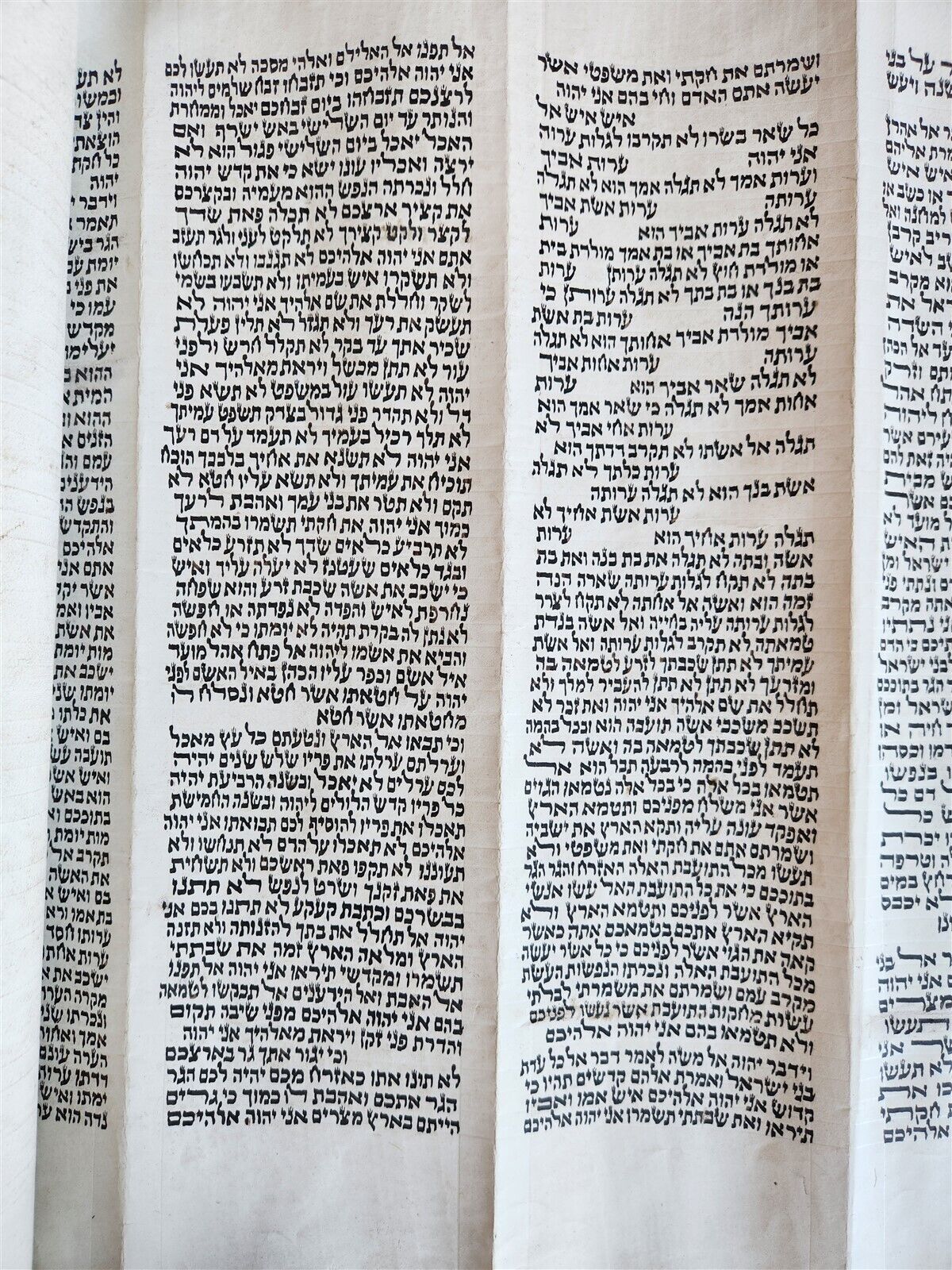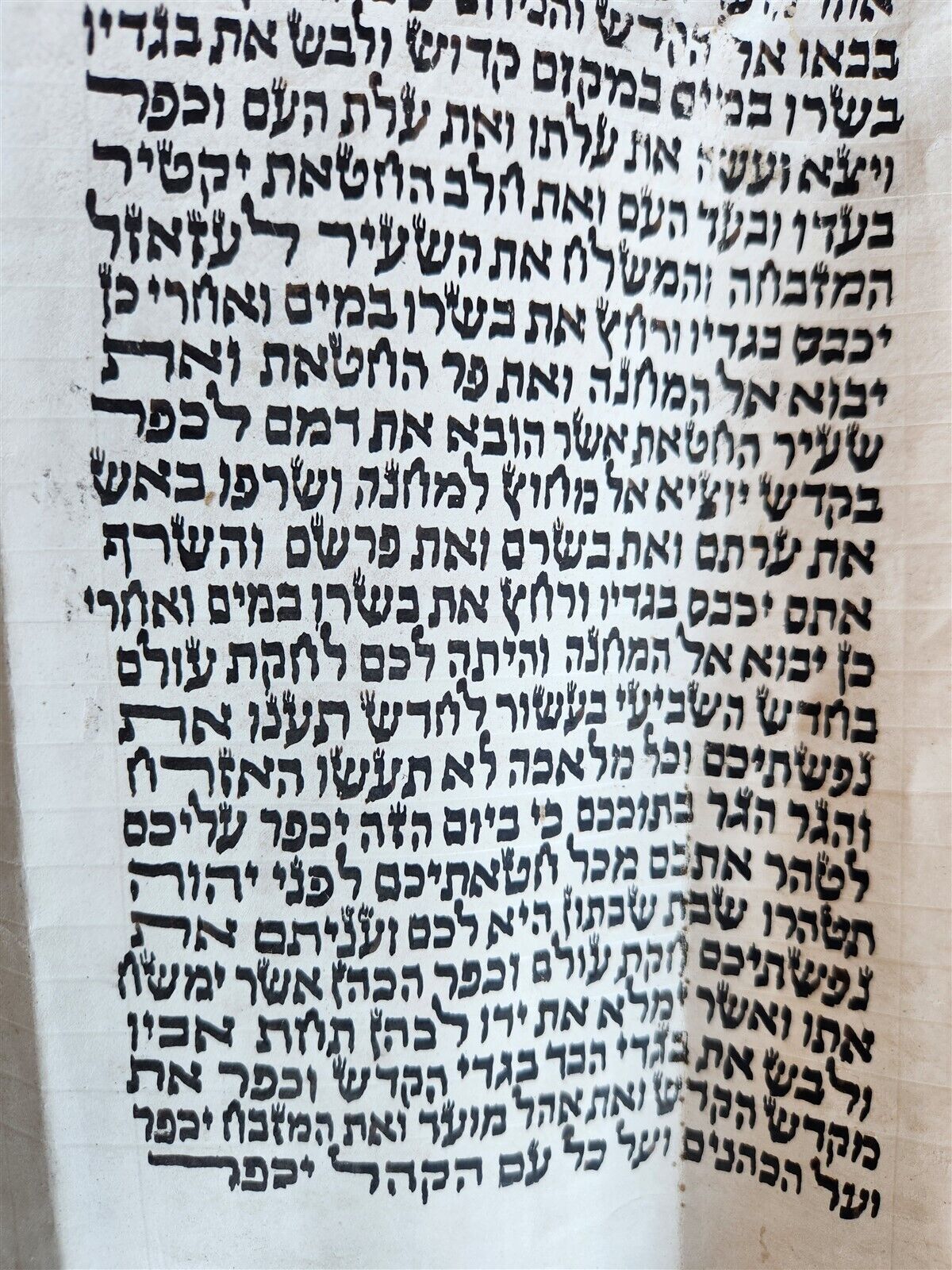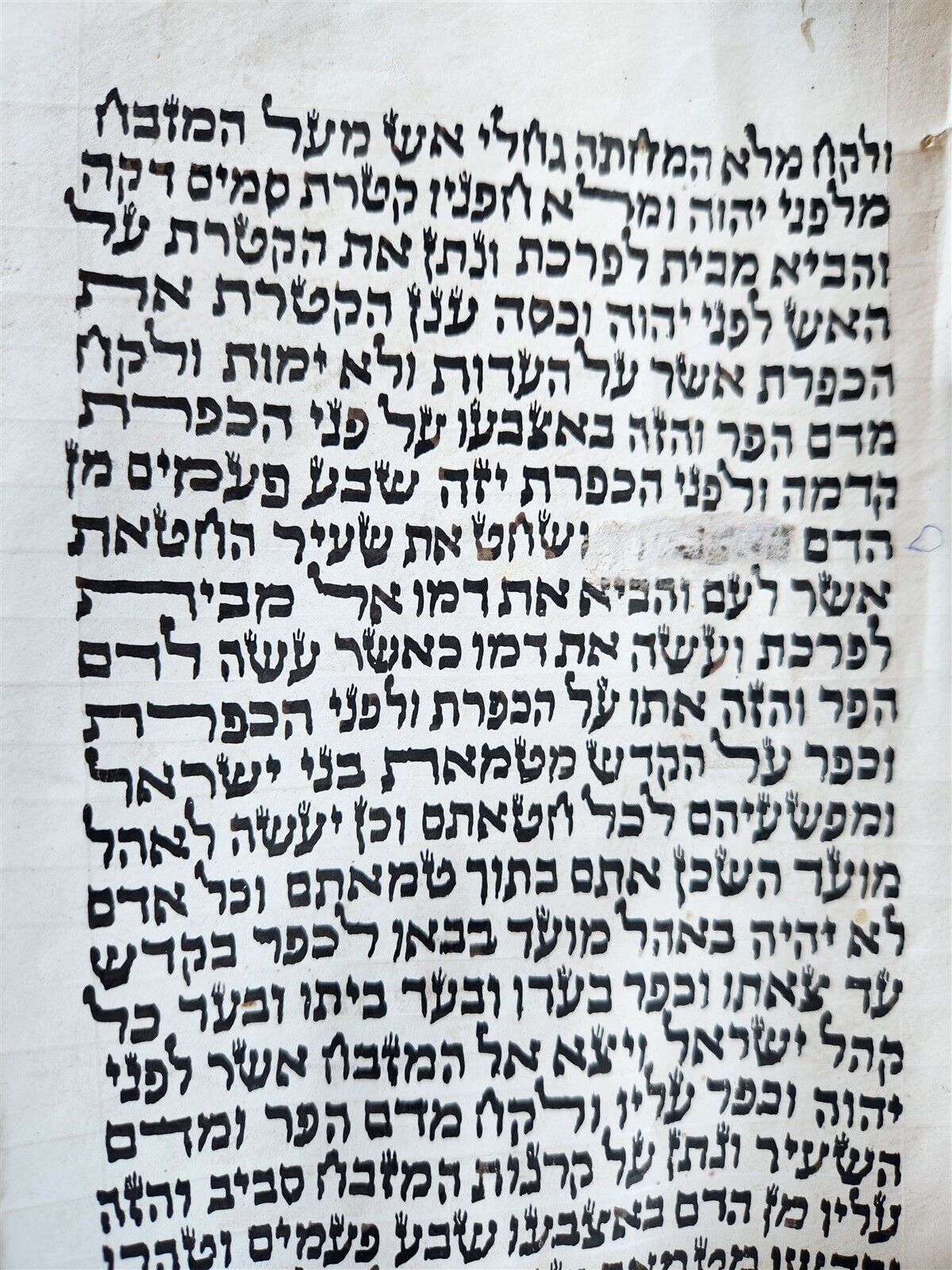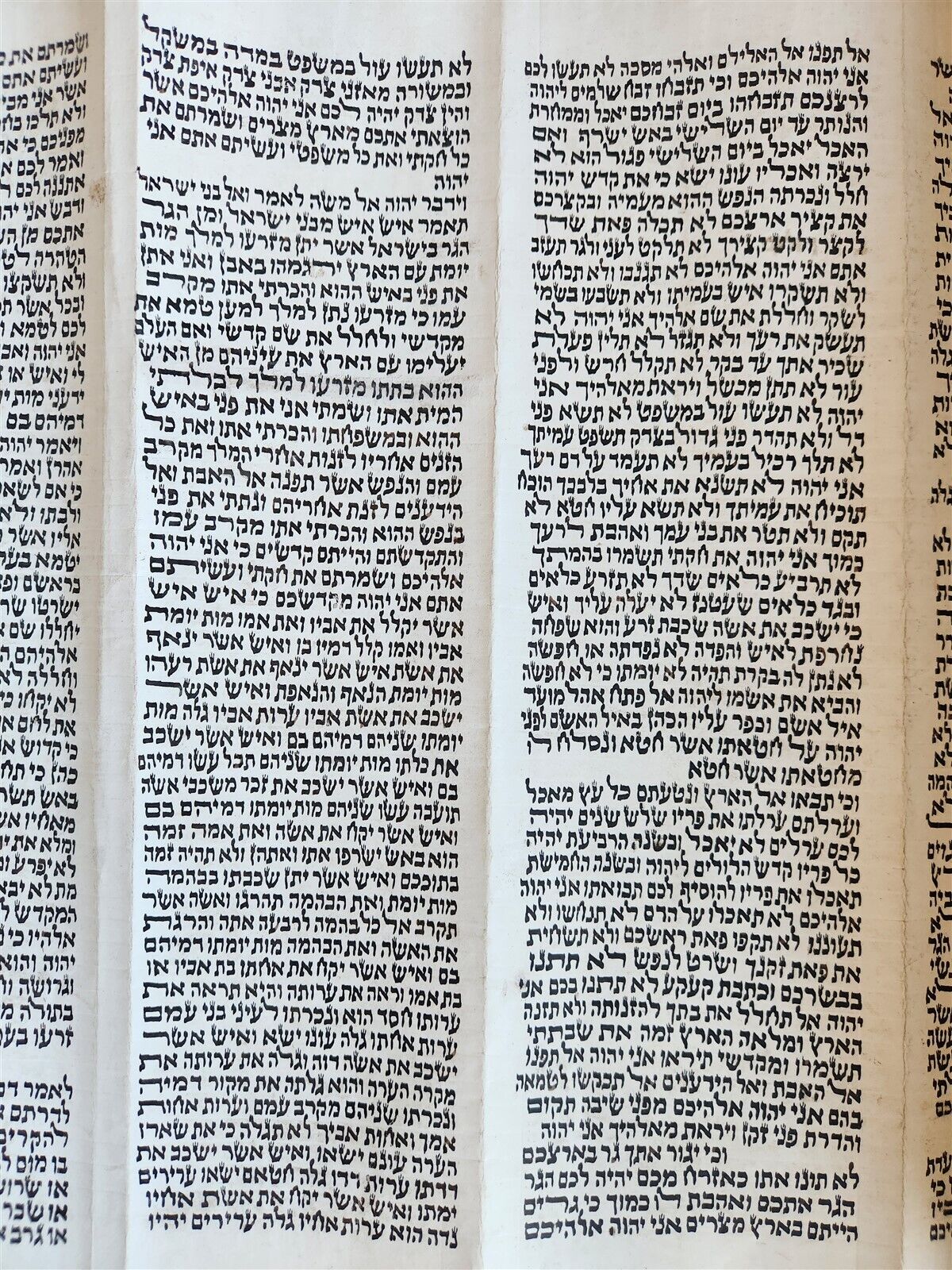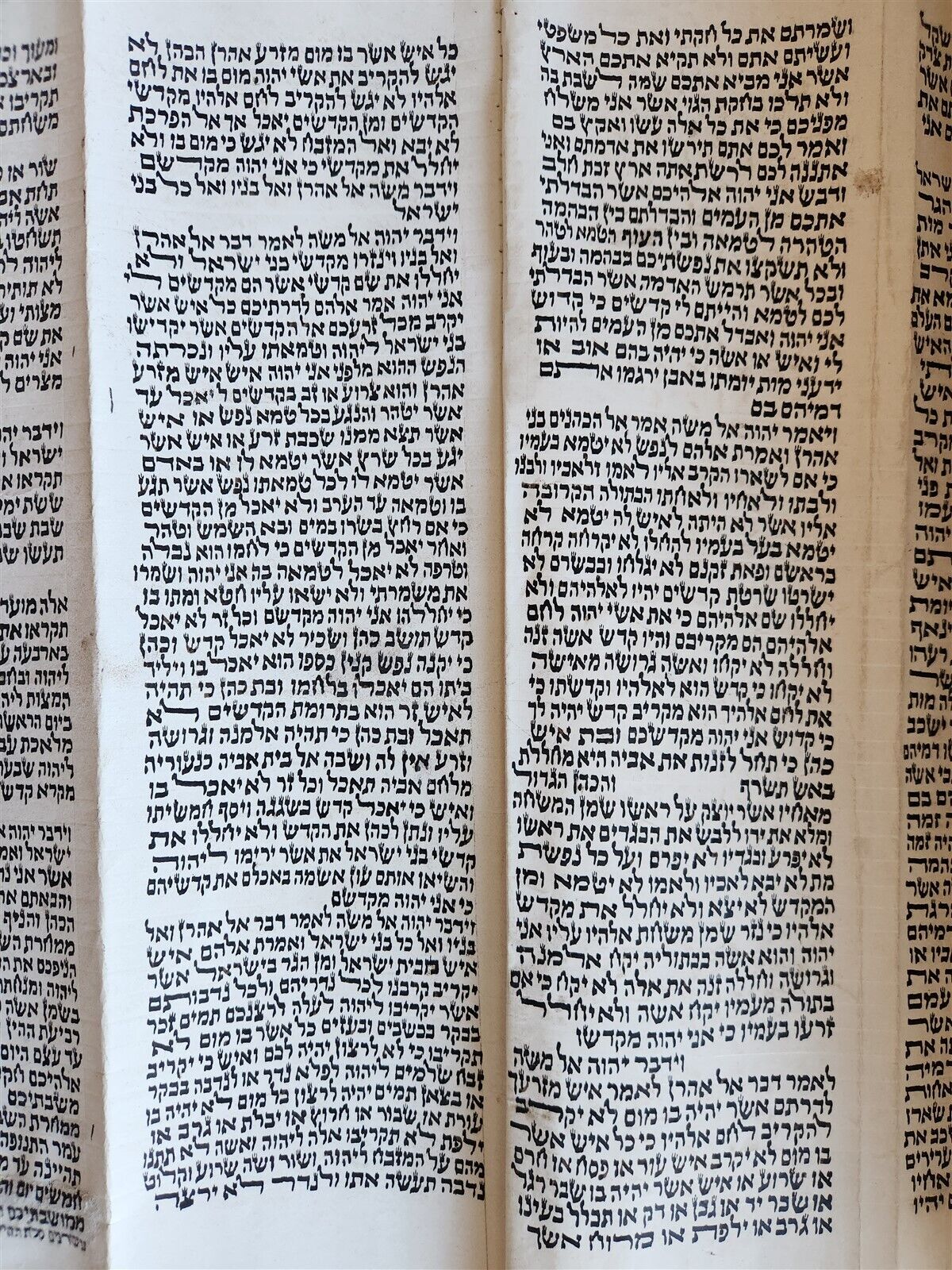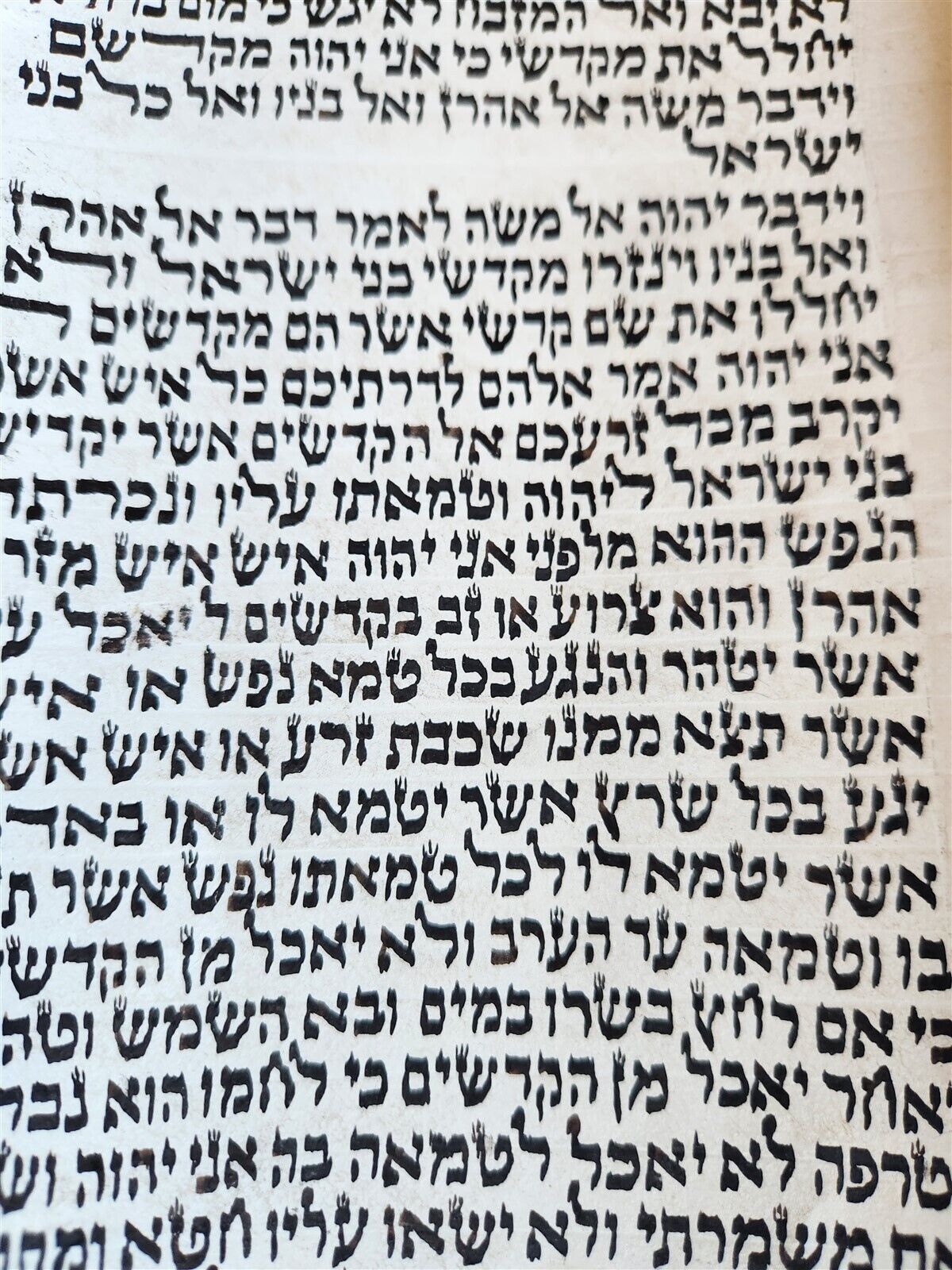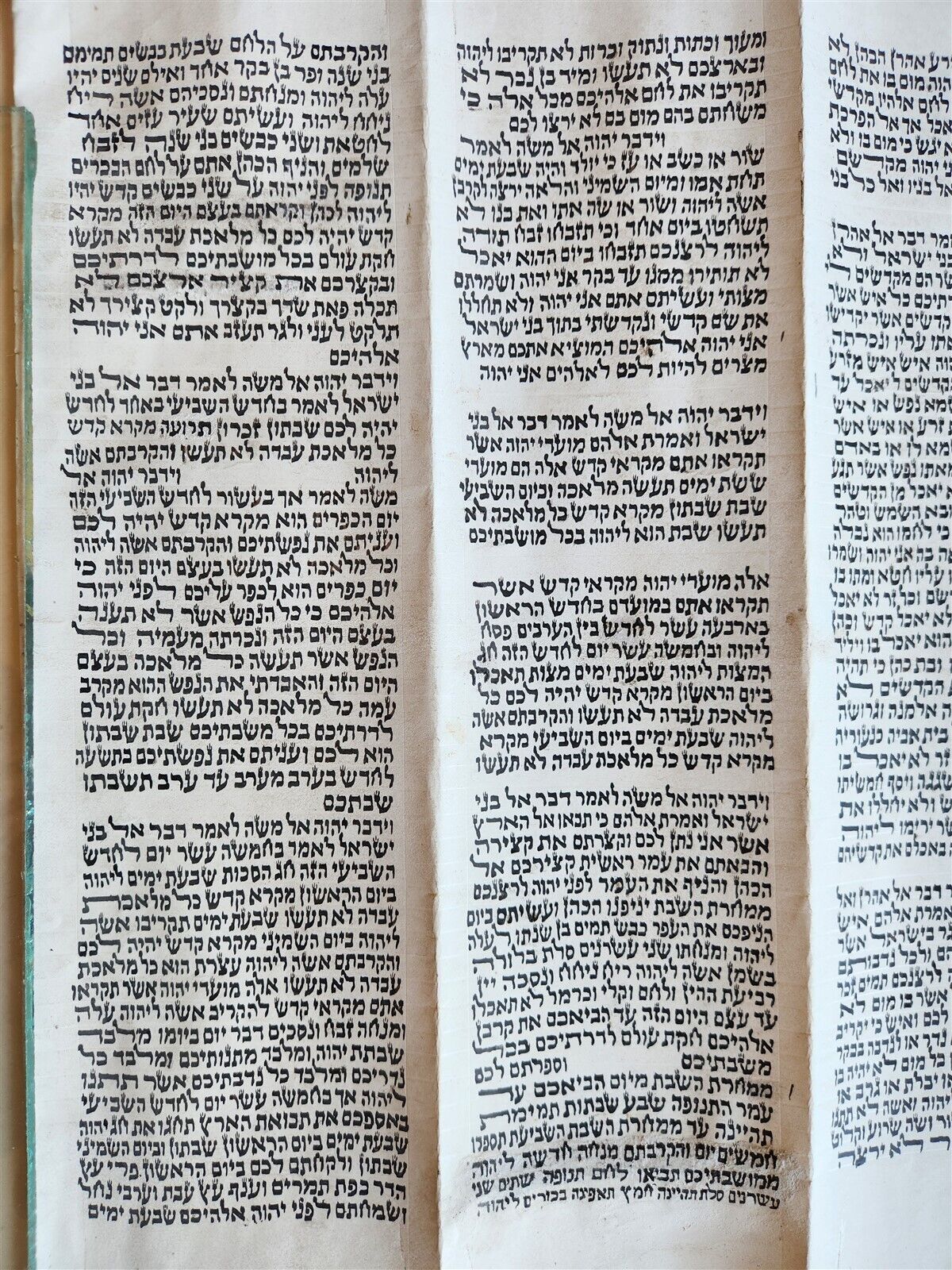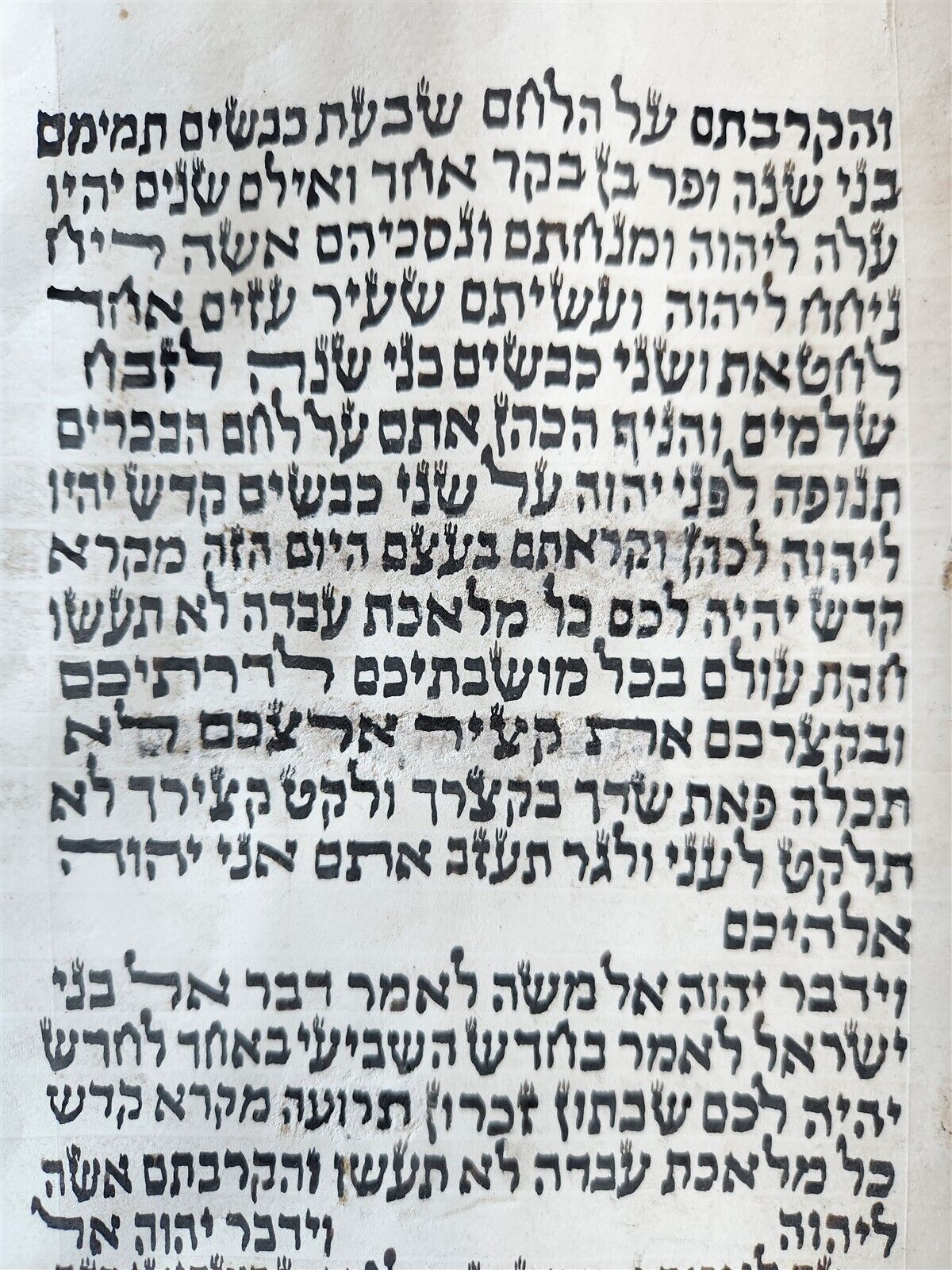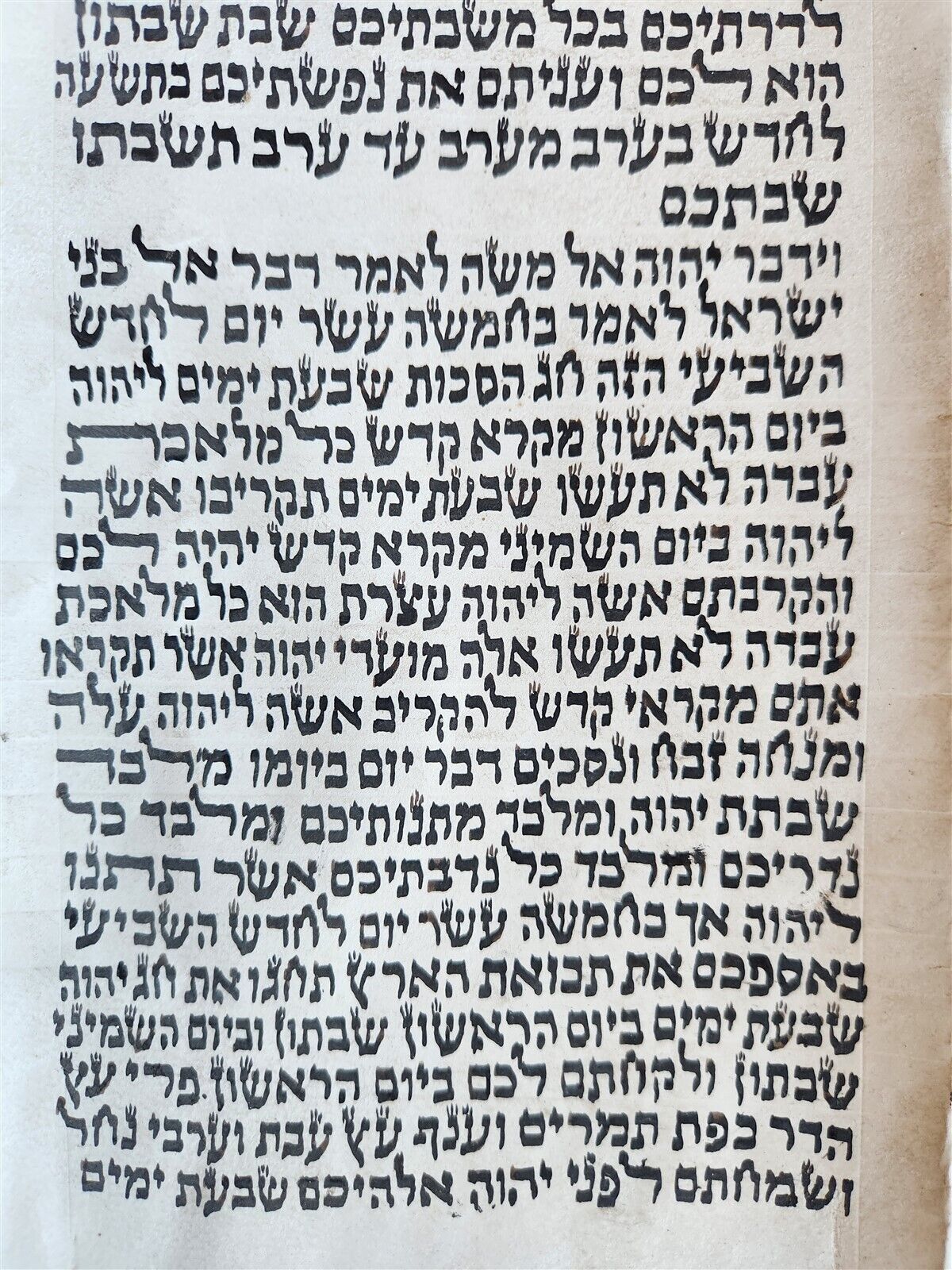Motka
TORAH SCROLL FRAGMENT MANUSCRIPT on VELLUM antique BIBLE LEVITICUS 16:12 - 23:40
TORAH SCROLL FRAGMENT MANUSCRIPT on VELLUM antique BIBLE LEVITICUS 16:12 - 23:40
Regular price
$150.50 USD
Regular price
$215.00 USD
Sale price
$150.50 USD
Unit price
per
Couldn't load pickup availability
Size 21.5 by 49"LEVITICUS 16:12 - 23:40Leviticus 16 is an important text in the book of Leviticus and the entire Pentateuch. The rituals in Leviticus 16 were central to the religious life of ancient Judah. It provided the means of atonement for the sins of the household of the high priest and the people annually.17The laws include a strong prohibition on eating blood. The laws in Leviticus 1-7 are about sacrifices. The laws in Leviticus 17 also talk about the slaughter of animals, not primarily for sacrifice. In the Old Testament grain, wine, or animals are used as sacrifice.18Leviticus 18 doesn't tell us everything we need to know, but it gives us the basic rules. First, God prohibits incest (6-17). The principle is pretty straightforward: a man may not marry a close blood relative or any woman who becomes a close relative through marriage.19Leviticus 19 provides instructions for the way Israelites should understand the meaning of worship, economic rules, and social laws, so they can be holy before God.20"`If a man commits adultery with another man's wife--with the wife of his neighbor--both the adulterer and the adulteress must be put to death. "`If a man sleeps with his father's wife, he has dishonored his father. Both the man and the woman must be put to death; their blood will be on their own heads.21The high priest was expected to uphold an even higher standard of holiness than the regular priests. He was not to tear his clothes or let his hair hang loose (signs of mourning). He was not to make himself unclean by approaching a dead body, even the body of his mother or father. He was only allowed to marry a virgin.22'No outsider shall eat the holy offering; one who dwells with the priest, or a hired servant, shall not eat the holy thing. But if the priest buys a person with his money, he may eat it; and one who is born in his house may eat his food.23This chapter is about the special holy days the Israelites were to observe throughout the year. In addition to the feast days mentioned below, the Hebrews were to observe the Sabbath day of rest every 7th day of the week.=================================
Please see my other auctions Thank You
---------------------------------------------------------------------------------------------------------------------------------------------------------------------------------------------------------------------------------------------------------------------------------------------------------------------------------------------------------------------------------------------------------------------------------------------------------------------------------------------------------------------------------------------------------------------------------------------------------------------------------------------------------------------------------------------------------------------------------------------------------------------------------------------------------------------------------------------------------------------------------------------------------------------------------------------------------------------------------------------------------------------------------------------------------------------------------------------------------------------------------------------------------------------------------------------------------------------------------------------------------------------------------------------------------------------------------------------------------------------------------------------------------------------------------------------------------------------------------------------------------------------------------------------------------------------------------------------------------------------------------------------------------------------------------------------------------------------------------------------------------------------------------------------------------------------------------------------------------------------------------------------------------------------------------------------------------------------------------------------------------------------------------------------------------------------------------------------------------------------------------------------------------------------------------------------------------------------------------------------------------------------------------
Size 21.5 by 49"
LEVITICUS 16:12 - 23:40
Leviticus 16 is an important text in the book of Leviticus and the entire Pentateuch. The rituals in Leviticus 16 were central to the religious life of ancient Judah. It provided the means of atonement for the sins of the household of the high priest and the people annually.
17
The laws include a strong prohibition on eating blood. The laws in Leviticus 1-7 are about sacrifices. The laws in Leviticus 17 also talk about the slaughter of animals, not primarily for sacrifice. In the Old Testament grain, wine, or animals are used as sacrifice.
18
Leviticus 18 doesn't tell us everything we need to know, but it gives us the basic rules. First, God prohibits incest (6-17). The principle is pretty straightforward: a man may not marry a close blood relative or any woman who becomes a close relative through marriage.
19
Leviticus 19 provides instructions for the way Israelites should understand the meaning of worship, economic rules, and social laws, so they can be holy before God.
20
"`If a man commits adultery with another man's wife--with the wife of his neighbor--both the adulterer and the adulteress must be put to death. "`If a man sleeps with his father's wife, he has dishonored his father. Both the man and the woman must be put to death; their blood will be on their own heads.
21
The high priest was expected to uphold an even higher standard of holiness than the regular priests. He was not to tear his clothes or let his hair hang loose (signs of mourning). He was not to make himself unclean by approaching a dead body, even the body of his mother or father. He was only allowed to marry a virgin.
22
'No outsider shall eat the holy offering; one who dwells with the priest, or a hired servant, shall not eat the holy thing. But if the priest buys a person with his money, he may eat it; and one who is born in his house may eat his food.
23
This chapter is about the special holy days the Israelites were to observe throughout the year. In addition to the feast days mentioned below, the Hebrews were to observe the Sabbath day of rest every 7th day of the week.
=================================
Please see my other auctions
Thank You
Refund Policy: We will issue a FULL REFUND, 100% money back if you are not satisfied with your purchase. Items must be returned to us within 20 days in order to receive a refund or replacement. Buyer is responsible for shipping costs.
Powered by SixBit's eCommerce Solution
View full details
- Language:Hebrew
- Material:Parchment
- Type:Handwritten Manuscript
- Original/Facsimile:Original
- Subject:Religion, Bibles
